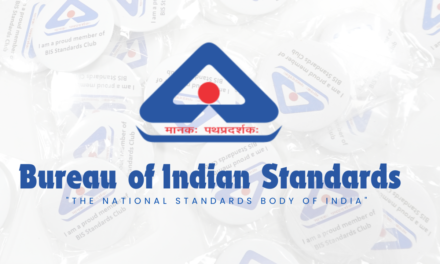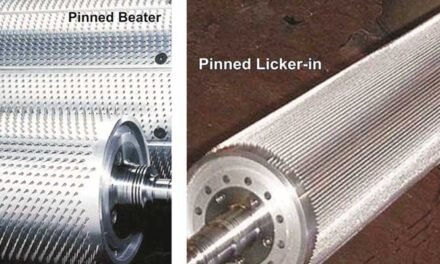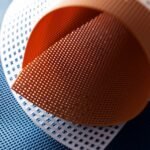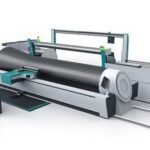What are the advantages of polyester fabric in terms of durability, maintenance, and versatility?
Advantages of Polyester Fabric:
Polyester is one of the most commonly used synthetic fibers in the textile industry due to its numerous advantages in terms of durability, maintenance, and versatility. Below are the key benefits of polyester fabric:
1. Durability:
- Strength: Polyester fabric is known for its exceptional strength. It is resistant to wear and tear, which makes it ideal for long-lasting garments and items. Even under regular use, polyester retains its shape and performance.
- Resilience: Polyester is highly resistant to stretching, shrinking, and fading, which makes it durable over extended periods. It can endure rough conditions without losing its appearance or texture.
- Tear-Resistant: Polyester has good tear resistance, meaning it is less likely to rip or get damaged compared to other fabrics, making it suitable for high-stress areas (e.g., activewear, workwear).
- Abrasion Resistance: The fabric’s resistance to abrasion ensures that it does not wear out easily from friction, contributing to its long life.
2. Easy Maintenance:
- Wrinkle Resistance: Polyester fabrics are known for their low tendency to wrinkle. This reduces the need for frequent ironing, making polyester garments and home textiles more convenient for everyday use.
- Stain Resistance: Polyester is resistant to stains and spills, which makes it easier to clean and maintain, especially in environments prone to messes, such as in children’s clothing or home upholstery.
- Color Retention: Polyester holds dyes better than many other fabrics, meaning it is less likely to fade after repeated washing. This is especially advantageous for keeping vibrant colors intact over time.
- Quick-Drying: Polyester has moisture-wicking properties and dries quickly, reducing drying time compared to natural fibers like cotton. This is a key advantage for sportswear, activewear, and outdoor gear.
3. Versatility:
- Wide Range of Applications: Polyester is a highly versatile fabric that can be used in a wide variety of applications, including clothing (activewear, fashion, outerwear), home textiles (curtains, upholstery), and industrial fabrics (tent materials, ropes).
- Blending with Other Fibers: Polyester is commonly blended with other fibers (e.g., cotton, wool, spandex) to combine its durability and low-maintenance properties with the texture or feel of natural fibers. For example, a polyester-cotton blend combines the comfort of cotton with the durability and easy care of polyester.
- Adaptability to Different Textures: Polyester can be engineered to mimic a variety of textures, from silky and smooth to coarse and rugged, offering endless design possibilities for different products.
4. Cost-Effectiveness:
- Affordable Production: Polyester is typically less expensive to produce compared to many natural fibers like silk, wool, or cotton. This makes it a cost-effective option for mass production, especially for garments that require durability and frequent use.
- Low-Cost Maintenance: Due to its durability and ease of cleaning, polyester products require less maintenance, resulting in savings over time in terms of laundry and fabric care.
5. Resistance to Environmental Factors:
- Weather Resistance: Polyester is highly resistant to moisture, which helps prevent mildew and mold growth, especially in humid or rainy environments. It’s commonly used in outerwear, jackets, and outdoor gear due to this resistance.
- UV Resistance: Polyester has natural resistance to ultraviolet (UV) light, which helps prevent the fabric from deteriorating or fading when exposed to sunlight for prolonged periods.
- Non-Absorbent: Polyester does not absorb moisture, making it suitable for use in water-resistant clothing, as well as in items like waterproof tents, tarps, and outdoor gear.
6. Lightweight and Comfortable:
- Lightweight: Polyester is a lightweight fabric, which makes it comfortable to wear for long periods, especially in activewear or sportswear.
- Breathability: Although not as breathable as natural fibers like cotton, polyester fabrics are engineered to wick moisture away from the body, helping to keep the wearer comfortable in warm conditions by maintaining a dry surface.
7. Environmental Considerations (Recycling):
- Recycled Polyester: Polyester is recyclable and can be made from recycled plastic bottles, reducing the environmental impact of the production process. This makes it a more sustainable choice, especially in the context of the growing demand for eco-friendly materials.
- Circular Economy: Recycled polyester can be reprocessed and used to create new fabrics or products, contributing to a circular economy and reducing textile waste.
Polyester fabric offers a combination of durability, low-maintenance, and versatility, making it a highly popular choice for both fashion and functional applications. Its resistance to wear and tear, quick-drying properties, color retention, and adaptability make it ideal for a wide range of products, from everyday clothing to industrial textiles. While synthetic, polyester’s recyclability and cost-effectiveness provide a more sustainable option for mass production compared to other materials. Despite some environmental concerns associated with synthetic fibers, advancements in recycling technologies and sustainable production methods are helping make polyester a more eco-friendly choice.







